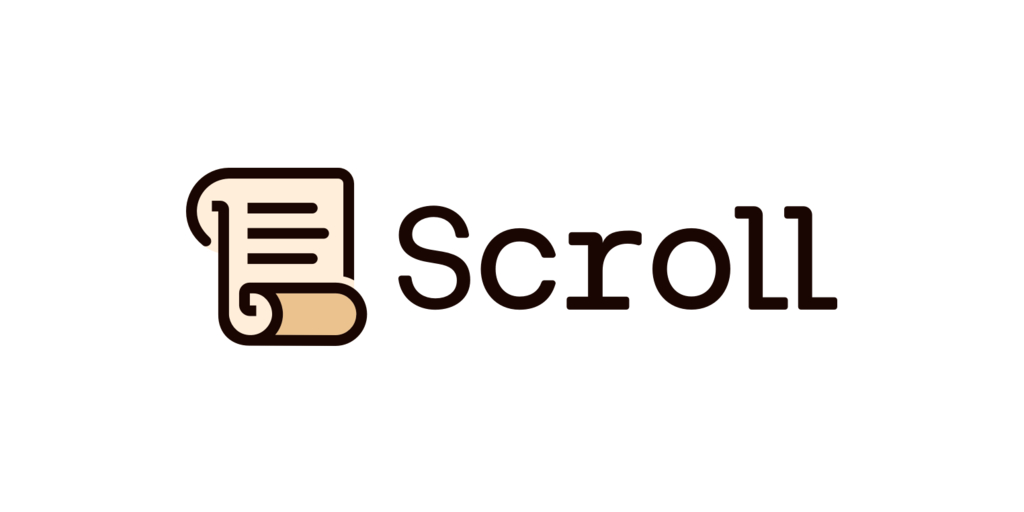The open-source rollup leverages zero-knowledge proofs to increase speed and lower costs, ushering in a new era of developer adoption for Ethereum
NEW YORK & HONG KONG–(BUSINESS WIRE)–Scroll, an open-source, community-first Ethereum scaling solution, today announced the launch of its mainnet, marking a significant milestone in the movement to scale and drive adoption to the world’s largest smart contract platform and first programmable blockchain.
The launch arrives at the culmination of two years of intensive development and rigorous testing, during which zero knowledge (zk) proofs were employed to compress computation off the primary blockchain. As Ethereum attracts more users and projects, this increased traffic can slow down the network and raise costs. ZK proofs enable an innovative approach that substantially enhances transaction throughput with accelerated transaction speeds and reduced costs, signifying a monumental shift in Ethereum’s scaling capabilities.
Scroll’s unique bytecode-level Ethereum Virtual Machine (EVM) compatible zkEVM offers a virtually identical experience to Ethereum, empowering developers to essentially copy, paste, and deploy their existing Ethereum projects onto Scroll as-is, with no required changes to the codebase. The development is a testament to Scroll’s commitment to scale Ethereum without compromising security or decentralization.
“At Scroll, we take security extremely seriously,†said Haichen Shen, co-founder of Scroll. “Scroll approaches security holistically, maintaining a dedicated internal security team, fully auditing our codebase with numerous audit firms, and remaining open-source, which we have been since day one.â€
Scroll’s mainnet launch comes after over a year of successful testnets, seeing over 55 million transactions on Alpha and Beta testnets and nearly a million batches finalized to L1. Sepolia, the most recent testnet, in two months saw over 900K wallet addresses and over six million transactions. Over 100 projects have deployed on Scroll testnets to date, spanning from infrastructure to DeFi to gaming and beyond. Scroll’s mainnet operates exactly like its Sepolia testnet, which will continue to operate as a staging environment for developers.
On the Scroll mainnet, users and developers have the same experience as they would on Ethereum, powered by zero knowledge cryptography. Scroll’s mainnet will first focus on onboarding infrastructure providers, followed by rolling deployments that will empower developers across the globe to start building Web3 products and ultimately drive new users into the Ethereum community.
“We see a future where the vast majority of value transfer takes place on L2s on Ethereum. What will drive that adoption is improved user and developer experience,†said Sandy Peng, co-founder of Scroll. “We focus on enabling developers to build blockchain applications that will anchor web3 in real world use cases, attracting new users en masse, and moving everyone forward.â€
Scroll was established in 2021 with the mission to build an open-source, scalable ecosystem leveraging the native capabilities of a zkEVM, while maintaining Ethereum’s well-known security capabilities and upholding the community’s commitment to decentralization. To advance this commitment, the next milestones on Scroll’s roadmap are a decentralized prover network and decentralized sequencer.
For the past two and a half years, Scroll has collaborated with the Ethereum Foundation’s Privacy and Scaling Explorations (PSE) group to contribute approximately 50 percent of the upstream PSE zkEVM codebase. From its inception, Scroll has been building an open-source, peer-reviewed, and permissionless project, and the team continuously publishes research to advance understanding of the inner workings of ZK circuits, cryptography, and hardware acceleration.
Visit scroll.io for more information.
About Scroll
Scroll is a zero knowledge scaling solution for Ethereum with lower costs, faster speeds, and infinite scaling, without sacrificing security or decentralization. With bytecode-level compatibility, building on Scroll is nearly identical to building on Ethereum. Scroll has been community-focused and open-source since day one. With its zkEVM, Scroll unlocks the power of Web3 with the same security as the Ethereum blockchain. To learn more, visit: scroll.io.
Contacts
Ali Adkins
[email protected]








